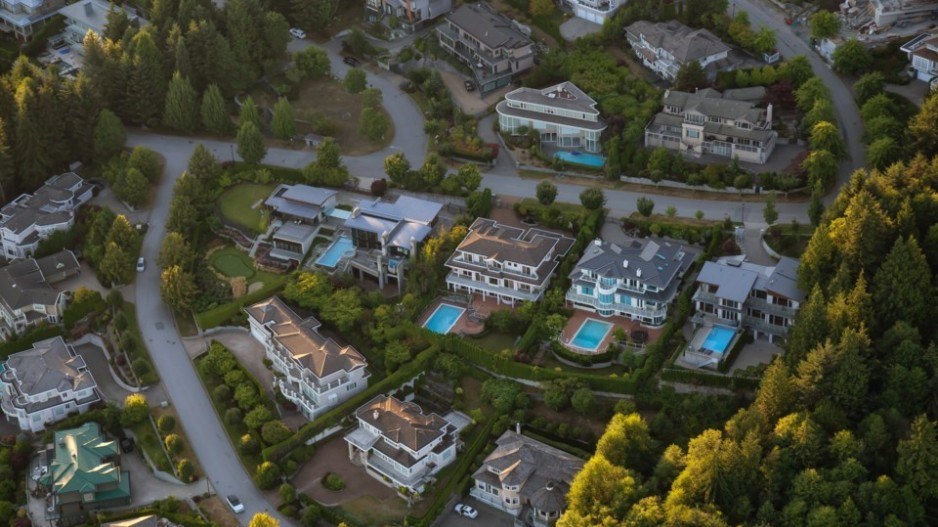After a two-year public process, District West Vancouver council has taken steps to limit construction of ‘monster houses’ in the municipality.
Council voted July 27 to approve bylaws aimed at preserving neighbourhood character while allowing for ‘gentle densification’ in the district.
The bylaws set limits on maximum house sizes, which vary depending on the size of the lot and the size of neighbouring lots. But it also allows for more subdivision of larger lots and provides incentives for owners to build coach houses and include secondary suites on their properties.
The idea is to encourage smaller homes and limit the visual impact of houses that don’t fit in with the existing neighbourhood, while still preserving property owners’ equity, according to staff.
The unanimous vote from council – which will see the changes go into effect in January – comes after a lengthy citizen-led consultation process that began in 2018. A report from that group was presented to council in November. That process followed unsuccessful attempts by previous councils to curtail demolition of existing homes to build massive new houses in the district.
Coun. Nora Gambioli applauded the change, calling it “the beginning of the end of new monster homes” in West Vancouver.
“This is a really positive shift in our single-family neighbourhoods,” said Gambioli. “In another 10 or 20 years it is going to make a very big difference.”
The biggest changes involve reducing the maximum floor area ratio (essentially the house size to lot size ratio) from the existing .35 to .30.
On a larger 22,000 square foot lot, for instance, the current maximum house size is 7,700 square feet. Under the new regulations, the maximum house size on the same lot would be decreased to 6,300 square feet.
Subdivisions streamlined
But the bylaw would also allow the property to be subdivided and for construction of two 3,300-square foot houses – something that’s currently not permitted.
The bylaw also provides “density bonuses” for coach house construction for owners who retain smaller, older homes on their properties. The process for coach house approvals is to be streamlined.
The bylaw also attempts to limit visual impact of homes on neighbours by changing how enclosed deck areas are included in the floor space ratios and how roof heights are calculated.
Only a handful of people tuned in to speak at a public hearing immediately preceding the vote. Most supported the changes.
Nancy Smeal, vice-chair of the citizen working group that spearheaded the changes, said it promotes needed housing diversity in West Vancouver while also attempting to curtail houses that are out of scale compared to neighbouring homes.
“Neighbourhood character is important,” she said.
Among those who called or wrote to council, potential loss of trees to make room for coach house construction was one of the biggest concerns.
One resident voiced concern that the changes are quite complicated and will be hard for many people to understand.
He also voiced doubt that the incentives will be enough to prompt homeowners to build coach houses, citing the prohibitive cost of building one.
Coun. Craig Cameron agreed, saying he wasn’t sure the bylaws went far enough to encourage more densification.
“We’ve had virtually zero coach houses being built in the 10 years I’ve been on council,” he said. “I’d like to see more bonuses for coach houses. I’d like to see it made easier and cheaper.”
Cameron said while the changes on coach houses and subdivision rules are welcome, “It’s not going to bring about any measure of housing affordability.”
West Vancouver’s benchmark home price in July reached $3,121,800, up 17 per cent from a year earlier, according to the Real Estate Board of Greater Vancouver.
Coun. Bill Soprovich asked whether it was fair for a person with a large lot to be limited on what they can do with their property.
“Unless you live in Texas ... you actually have always had limitations,” said Mayor Mary-Ann Booth. “This is just changing what you can build.”
Booth added she thought the community was ready for the changes.
“We’ve seen what’s happened with a number of very large, very empty, unaffordable homes,” she said. “We’ve been talking about this for a long time.”




